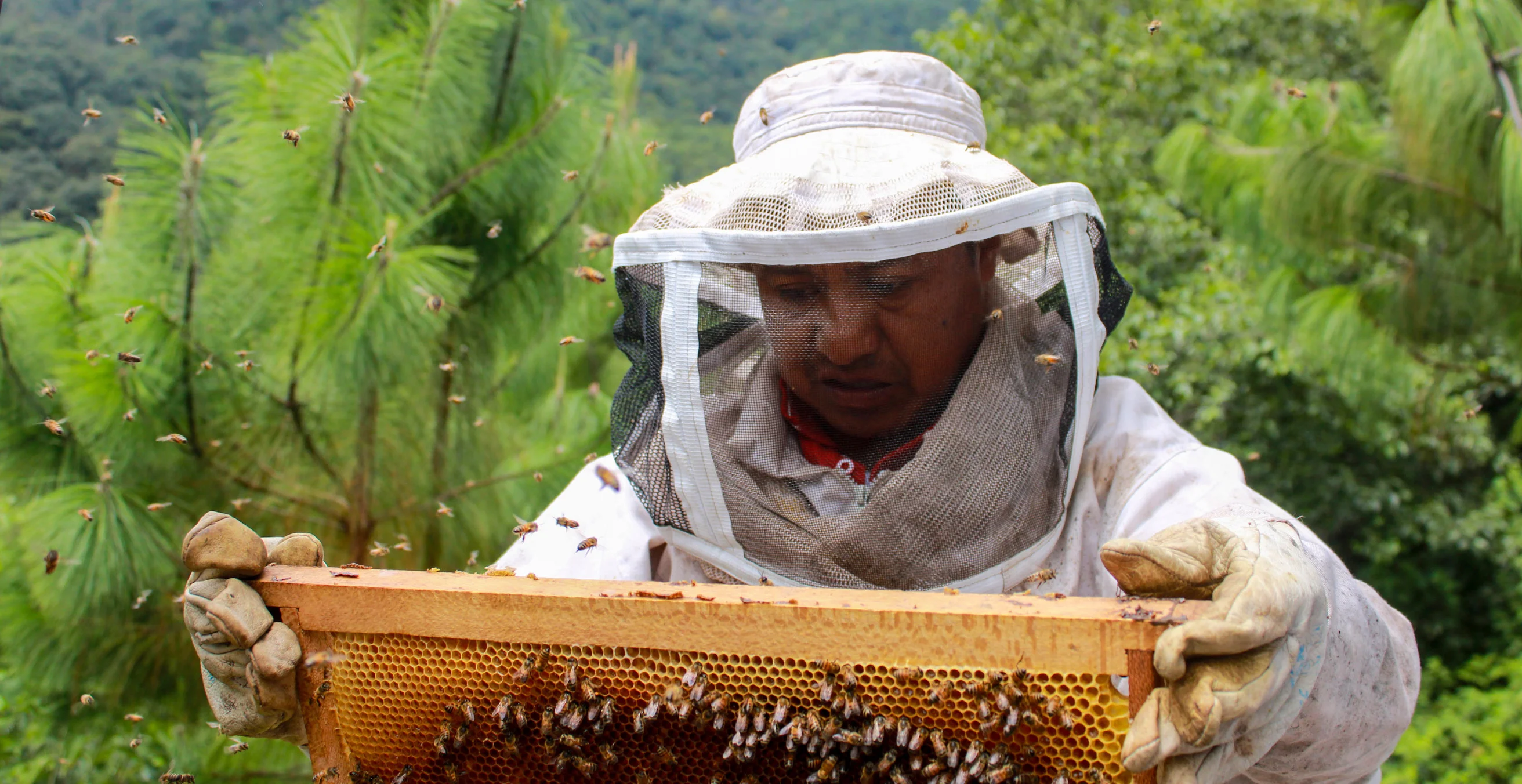Project background
The majority of the indigenous rural population in the Rio Quiscab watershed area in the Sololá department survive off self-sufficient subsistence agriculture. 70% of these farming families are poor. They overexploit their natural resources, water, forest, and soil. As a result of decreasing harvest yields, many farmers burn down areas of forest, but the cleared areas only bring good yields for a few years. In addition, the erosion causes the streams to wash valuable topsoil into Lake Atitlán, which is the largest freshwater reserve in Central America and whose water quality has been impaired as a result. Furthermore, the farmers are also fighting against increasing droughts caused by climate change.
Our approach
We help smallholder families use their land in a way that conserves resources while still improving their yields. They learn sustainable yet more efficient cultivation methods, as well as beekeeping and mushroom cultivation, with which they can generate income and protect the forests. On the other hand, we also raise awareness of resource conservation among broad sections of the population and support the authorities in creating the basis for well-regulated land use planning.


